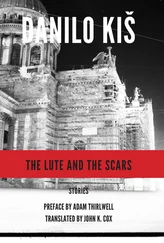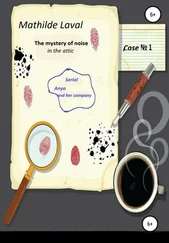Danilo Kiš - The Attic
Здесь есть возможность читать онлайн «Danilo Kiš - The Attic» весь текст электронной книги совершенно бесплатно (целиком полную версию без сокращений). В некоторых случаях можно слушать аудио, скачать через торрент в формате fb2 и присутствует краткое содержание. Год выпуска: 2012, Издательство: Dalkey Archive Press, Жанр: Современная проза, на английском языке. Описание произведения, (предисловие) а так же отзывы посетителей доступны на портале библиотеки ЛибКат.
- Название:The Attic
- Автор:
- Издательство:Dalkey Archive Press
- Жанр:
- Год:2012
- ISBN:нет данных
- Рейтинг книги:4 / 5. Голосов: 1
-
Избранное:Добавить в избранное
- Отзывы:
-
Ваша оценка:
- 80
- 1
- 2
- 3
- 4
- 5
The Attic: краткое содержание, описание и аннотация
Предлагаем к чтению аннотацию, описание, краткое содержание или предисловие (зависит от того, что написал сам автор книги «The Attic»). Если вы не нашли необходимую информацию о книге — напишите в комментариях, мы постараемся отыскать её.
Bildungsroman
The Attic — читать онлайн бесплатно полную книгу (весь текст) целиком
Ниже представлен текст книги, разбитый по страницам. Система сохранения места последней прочитанной страницы, позволяет с удобством читать онлайн бесплатно книгу «The Attic», без необходимости каждый раз заново искать на чём Вы остановились. Поставьте закладку, и сможете в любой момент перейти на страницу, на которой закончили чтение.
Интервал:
Закладка:
“It had to be this way,” I said in a conciliatory tone, almost to myself. Then I hung the pistol up again on its hook above the bar. Naturally I had already reloaded the magazine.
Barba-Umberto held up unexpectedly well at the interrogation. Billy was kind of nervous. We were fined a trivial sum.
But the memory of the Island never left me, even for a moment. This time I said nothing at all to Billy Wiseass about it. I wanted to liberate myself from my selfishness . That’s why I told him nothing. Right up to the day I left, unexpectedly. My God, it was also quite unexpected for me.
To be honest, the idea of a taverna was nonetheless an excellent one. Not only because we would then no longer need to knock about in filthy harborside dives (if Muhammad won’t go to the mountain. .), but also because it allowed the world to come to us (. . then the mountain will come to Muhammad). Everything that we had ever imagined became reality. We were not to be trifled with!
We wanted to purchase — that is to say, we did purchase — every kind of musical instrument possible, from accordions to Tahitian guitars. Otherwise we provided no music. The guests were informed by means of the menu that the instruments were at the disposal of anyone who knew how, and, of course, had the desire to, play them. Thus, late one winter evening, we had the chance to hear a young woman (I never saw her again) play Debussy’s “Clair de lune” on her harp. Her dignified features betrayed her affinity with the nostalgic and anachronistic sense of refinement of the nineteenth century. She had sickly, dark green eyes and pale, fragile hands. While she played, her hair fell onto the gilded baroque harpstand and concealed her face. Never before had a Corinthian column been crowned with a more noble capital. Her long fingers, with nails the color of old silver, glided over the strings, and everything would have ended beautifully if BarbaUmberto hadn’t wanted to stroke her hair. Her fingers paused on the strings as if they had been bewitched. She then swiftly put the harp aside and took her blue raincoat from the hanger. She didn’t even turn around as she exited. She made use of the general astonishment and disappeared forever.
“You, Barba-Umberto, are a regular moron,” I said, when we had pulled ourselves together. “A mo-ron!”
“So you think so too?” he said, like an idiot.
“Moron,” I repeated. “A senile moron.”
“Indeed, I’ve never heard anybody play more beautifully either,” came his naïve reply.
Igor practically jumped down his throat and said testily, “He’s telling you that you’re an idiot. Nothing but an idiot! Capito ?”
“You are right, my boy,” said Barba-Umberto. “Indeed, I never even saw hair like that in Constantinople. .”
“What do you think?” Igor asked, turning toward me. “Is he pretending to be crazier than he really is. .?”
“What else could it be?” Umberto interrupted. “ It seemed to me that moonlight was dripping through her fingers .”
I swear to you that this feeble-minded old Umberto said exactly that: “I had the impression that moonlight was dripping through her fingers.”
Can you imagine? That idiot, Umberto!
We wanted to become wealthy, powerful. In order to buy ourselves a yacht (it had already been named Eurydice , what else?) and sail the seven seas, visit all the continents. Of course our first mission would have been to visit the Bay of Dolphins. To verify its existence .
So who says that it isn’t out there somewhere?
“Look, this is why we must resort to poison and dagger ,” said Igor. Or I was the one who said: “To poison and dagger.”
“Salted sardines aren’t poison.”
“At any rate,” we said, “they make you hellishly thirsty. Therefore everyone should have a barrel with sardines close at hand. Free poison.”
Thus we bought a barrel of salted sardines and put it in the middle of the taverna, at everyone’s disposal. We assigned Umberto and Leontina the task of placing a few sardines onto the little ceramic plate in front of every guest, so that everyone would drink at least a liter of table wine afterward. We were counting on human greed.
That’s how it all began. And, sure enough, everything went well at first. Late on winter evenings we listened to sailors’ laments on the accordion; we became the port’s confessional; we became the resonant seashell that sings with the voice of the Sirens when you hold it up to your ear. Here and there burned a candle or two, and at “Desperados” people were always singing as piously as they would at Mass.
But soon everything went to hell in a handbasket, in the way that only a dream can go belly up. We became a hangout for bums, a nest of thieves, a bordello, a snack bar where generous portions of salted sardines are handed out for free. We became a gambling joint, a forge for foul, pithy curses, a den of bloody showdowns, a font of outrageous vices and pathologies.
I swear: all of this could really have happened. It was all so beautifully conceived!
Igor, my friend, we have nothing left except the desert island! Did we not give our word ages ago that we would never kill ourselves? For the sake of a moment in the future!
Do you remember our conversation? In the attic — where else?
You: “Why don’t you kill yourself, Lute-meister? I know you’re just a shadow of your former self without Eurydice.”
I: “Mephistopheles! Satan!”
You: “Kill yourself. Be done with your shadow. You were not born to compromise.”
I: “And I didn’t compromise.”
You: “So isn’t Eurydice just a shadow as well? Tell me, Lute-meister: what is she?”
I: “The Ideal, Satan. The Ideal! The life-principle, if you will. That’s why I will not kill myself.”
You: “A striptease-ideal! Was it not you who asserted that the ideal ‘was not allowed to have freckles’? Did you not say, Lute-meister, that God could not become an ideal for you because He makes compromises with evil? Were you not gloating over the fact that you wouldn’t even bow to the sun, since it has spots? Did you not, my little lutie-pie, cease worshiping your erstwhile Eurydice (is that what she was called?) as soon as you got close enough to her to see the freckles on her nose? Did you not assert that the ideal, Eurydice, is not ideal if it isn’t perfect?”
“Silence, Billy! I’ll kill you, Satan!”
“Kill your own self. Out of consistency, at least. . Or make a compromise. Reconcile yourself to the fact that the sun has spots. And bow to it!”
“Igor, you devil, why are you tormenting me? Why are you leading me into temptation?”
“I’m just pounding some sense into you. If you can’t resign yourself to the fact that the Eurydice-ideal—”
“Then I should kill myself. .! Is that what you mean to say?”
“Yes. What will become of us if we aren’t capable of understanding an ideal metaphorically ?”
“What do you mean ‘metaphorically’?”
“That’s easy: conditionally. The sun—”
“We should deal with freckles. Sunspots. That’s what you want to say.”
“Bravo, Lute-meister. Precisely. As pure as the sun. When you draw close to her, when you cast a shadow over her: freckles. That’s Eurydice, the ideal. Can you accept that, ideal Lute-meister?”
“I don’t know, Igor. I just don’t know. Didn’t I tell you that even the sun—?”
“And you? And you. .? So are you without freckles? Aren’t you—?”
“You fool! This isn’t about me. I’m the least important person on the planet. Maybe that’s precisely the one good thing about me. That I am searching for the ideal, Eurydice. As my opposite. Do you get it? As my opposite . . That’s why it’s hard for me, Igor. But I shall not kill myself. But I can kill myself when I want to. That’s what you don’t want to understand.”
Читать дальшеИнтервал:
Закладка:
Похожие книги на «The Attic»
Представляем Вашему вниманию похожие книги на «The Attic» списком для выбора. Мы отобрали схожую по названию и смыслу литературу в надежде предоставить читателям больше вариантов отыскать новые, интересные, ещё непрочитанные произведения.
Обсуждение, отзывы о книге «The Attic» и просто собственные мнения читателей. Оставьте ваши комментарии, напишите, что Вы думаете о произведении, его смысле или главных героях. Укажите что конкретно понравилось, а что нет, и почему Вы так считаете.












